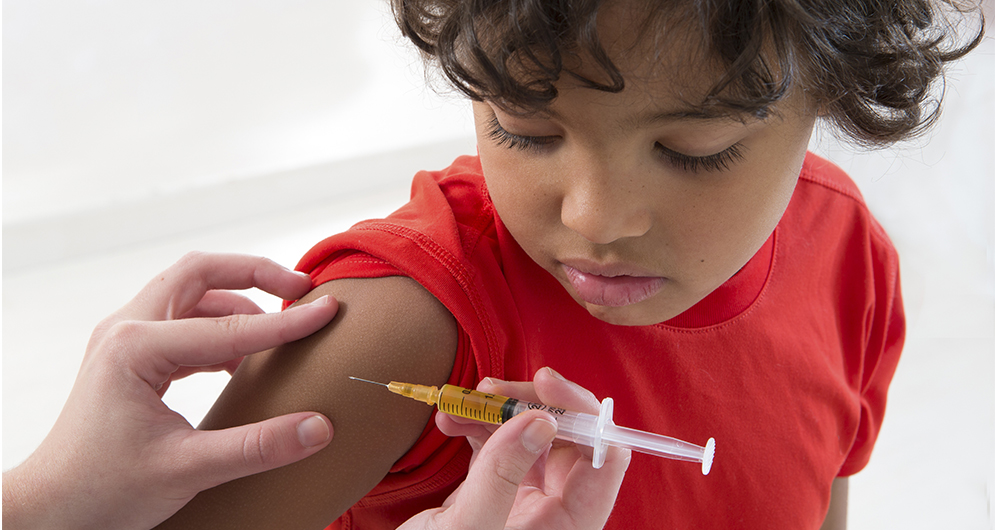As a parent, you want to do everything in your power to protect your child. One of the best ways to do this is by making sure they are up-to-date on their immunizations. This includes getting them vaccinated for diseases such as influenza, measles, hepatitis, etc., at the appropriate age. We’re here to help you with that! Below, we will provide a quick guide that will give you all the information necessary about how and when children should get immunization and vaccination against various illnesses and the risks if they aren’t properly vaccinated.
What is Immunization?
Most of us are aware that it is important to take precautions to avoid getting sick with any type of disease. But you might not know what these precautionary measures actually entail and how they work in order for your child to stay safe from viruses, bacteria or other types of pathogens.
Immunization is basically the process by which a person becomes immune to an infectious agent through vaccination or naturally. Vaccines can either be preventative (such as Hepatitis B vaccine) or therapeutic (such as Pneumococcal pneumonia vaccine). The purpose behind vaccinations is for children to have adequate resistance against different infections, which makes them less likely to contract diseases like the flu, measles, chickenpox etc. This works because the vaccine contains a small amount of antigens that are similar to those produced by a virus or bacteria but much weaker. When injected into your child’s system, it triggers an immune response that will help them develop antibodies, and their body will remember how to fight off these specific pathogens in case they encounter them at some point during their life.
Why is it crucial to get your child proper Immunization and Vaccination?
Vaccination is the best way to protect your child against serious illnesses. They are safe and effective ways of preventing diseases that pose a threat for infants, children, teenagers or adults.
Vaccines work by triggering the body’s natural defence system without causing the actual disease itself. The immunization process protects kids from infectious organisms, including bacteria and viruses, which can cause life-threatening infections. It is important to know that vaccines don’t contain live microorganisms, so they cannot give you or your child any additional infection while protecting them from dangerous ones, on the other hand. However, some people still think it might be risky because of their belief in growing concerns about vaccine safety. But, parents should not be afraid of vaccinations as they have been tested and proven to be safe for children, so there is no reason why you should not get your child vaccinated. Vaccines are essential since most diseases can cause serious health problems like blindness or hearing loss which could last a lifetime; some infections may even lead to death if left untreated.
Risks of not getting your child’s Immunization and Vaccination:
- Contracting serious illness that could be prevented
- Children may put others who cannot get immunized at risk as they are too young or for other medical reasons to get immunized
- Children are exposed to preventable diseases that can have long term consequences, such as permanent disability or death
- Increase in health expenses because of treatment for preventable diseases
- A child’s immunity may wear off over time, and they may not be protected against certain diseases when they grow up
- Parents of a child with a compromised immune system are at risk, as they cannot be immunized against certain diseases at their age.
When should you get started on the Immunization and Vaccination schedule for your child?
An infant should receive the first dose of vaccine at two months. The schedule for when your child’s next immunizations will be due can vary from doctor to doctor, so it is best to ask them when they recommend getting started on the vaccine schedule.
The WHO recommends that children get vaccinations against polio, tuberculosis (TB), hepatitis B and measles starting from newborn age in order to prevent diseases. If you are concerned about side effects or other risks involved with vaccines, discuss this with your pediatrician before making a decision regarding whether or not vaccinating your child is right for you.
How many vaccines should a child get between the age of 0-18 years?
According to the National Immunization Schedule of India, a child in India should get between 11-16 doses of vaccines by age 18 months and complete vaccinations. This includes:
- Measles, mumps and rubella (MMR)
- Diphtheria, tetanus and pertussis (DTP)
- Hepatitis B vaccine
- Hepatitis A vaccine
- Polio vaccine (OPV or IPV)
- Haemophilus influenza type b (Hib) vaccine
- Varicella (chickenpox) vaccine
- Pneumococcal (PCV)
- Rotavirus vaccine
- Human papillomavirus vaccine
- Meningococcal (MenACWY)
- Meningococcal B
We hope this guide has been a helpful resource for you and your family. If you have any questions, please feel free to contact us at Motherland Hospital. We have the best pediatrician in Delhi-NCR who will be happy to answer all of your queries and offer you the best care for your child.

